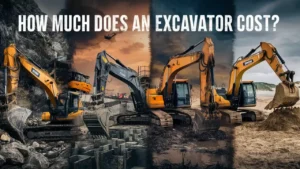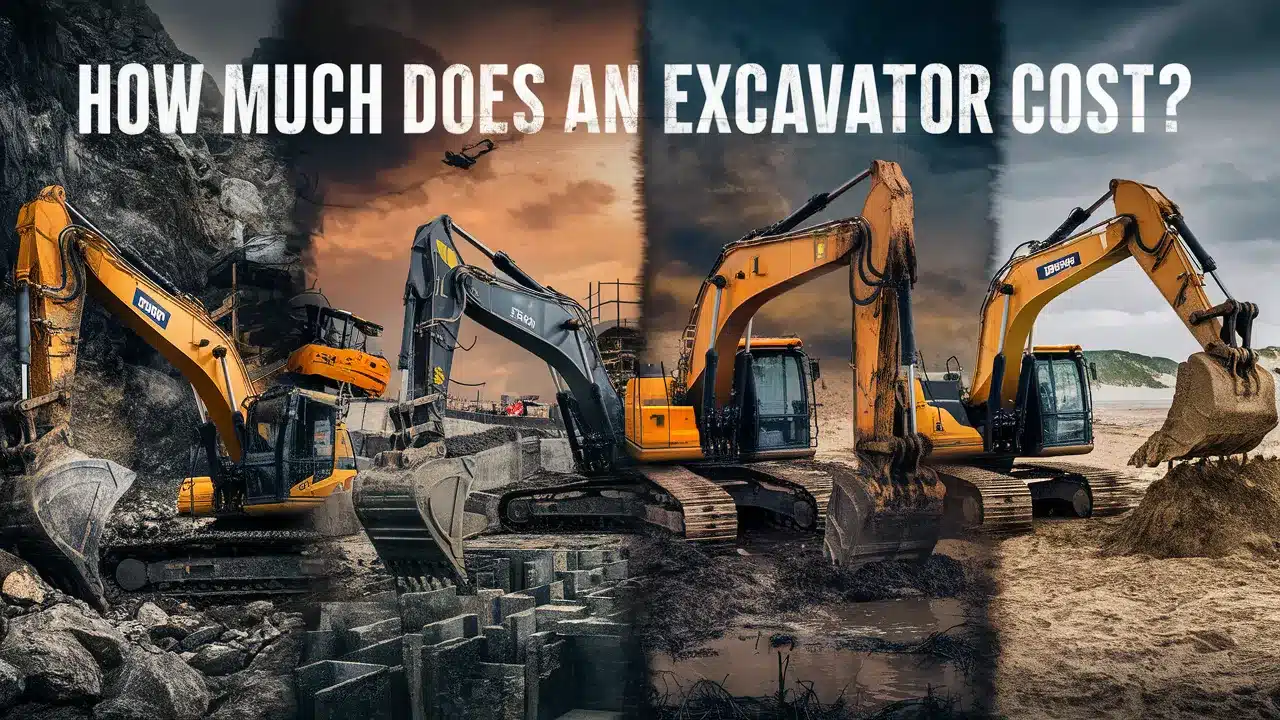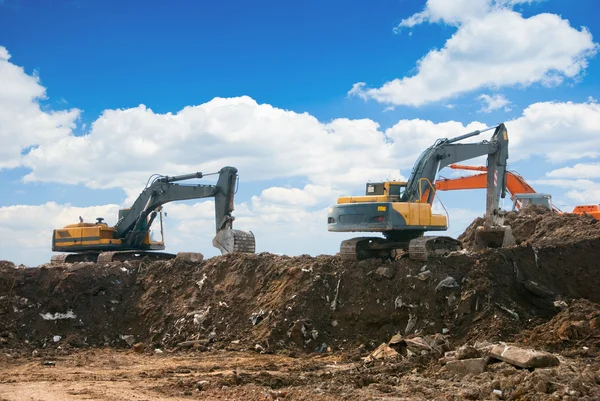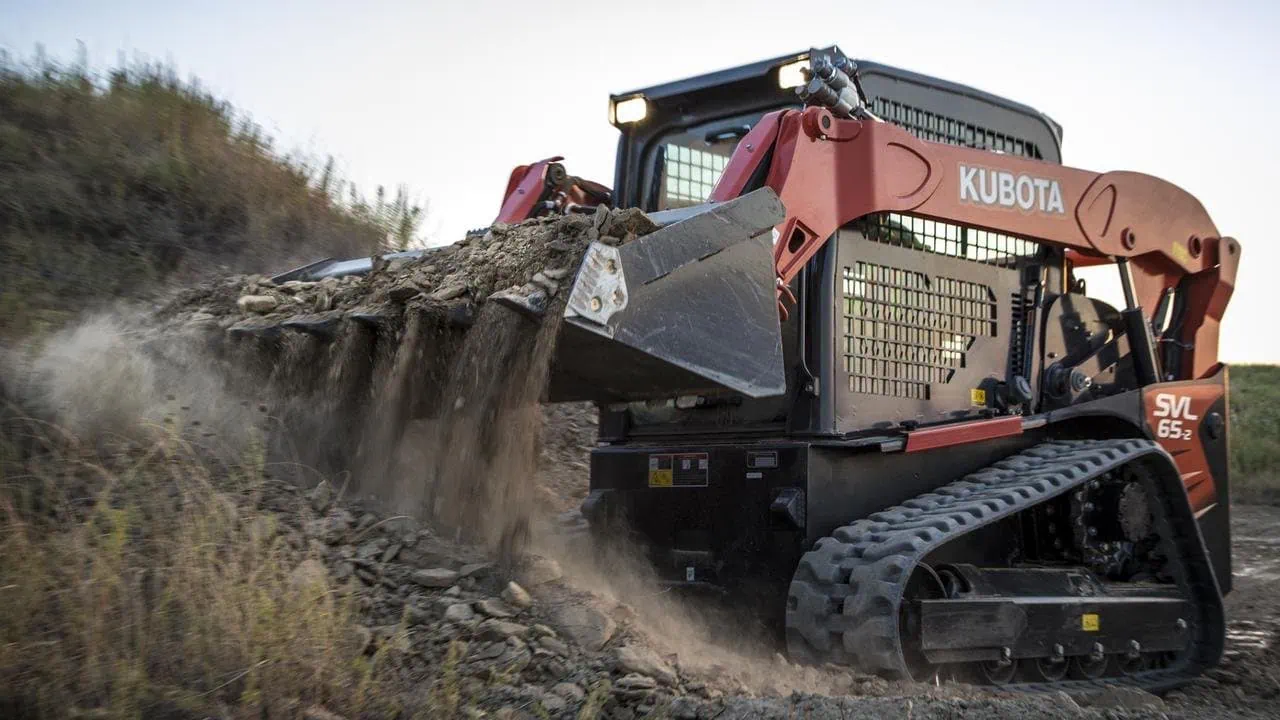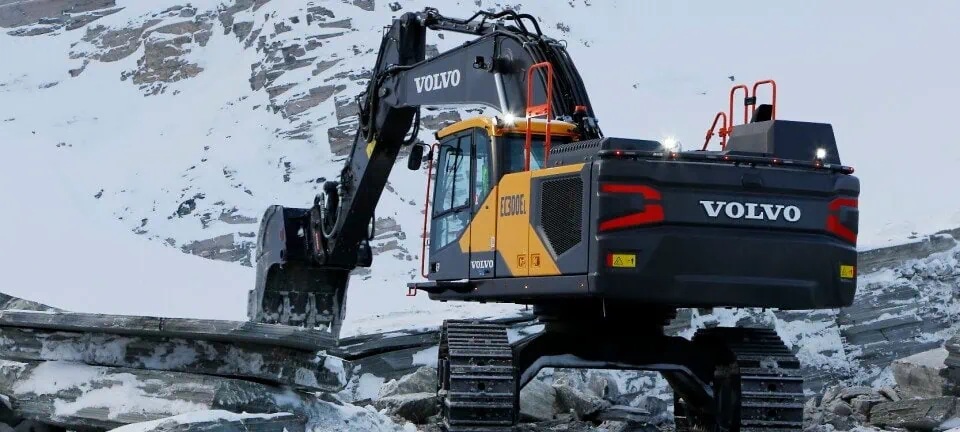Struggling to choose between backhoe vs excavator for your next project? Both machines serve different purposes, but you can end up paying more or being inefficient if you choose the wrong one. This article is going to help you understand the fuel efficiency of a backhoe versus an excavator and which one to select for your needs.
Choosing the right machine for your project involves understanding how fuel efficiency impacts your bottom line. Backhoes are more fuel-efficient for lighter tasks in confined spaces, while excavators excel in larger, heavy-duty projects despite higher fuel consumption. This article breaks down key factors influencing fuel efficiency, helping you decide the best equipment for your next job.
Now that we’ve outlined the main differences, let’s dive deeper into why each machine is designed the way it is and how that affects fuel efficiency.

Table of Contents
ToggleWhat is the Difference Between a Backhoe and an Excavator?
Before we dive into the comparison of fuel efficiency, let’s first talk about what a backhoe vs excavator are. It’s critical to understand the core difference between the two so you can better analyze their fuel performance.
backhoe
A backhoe is a versatile construction machine that is used mostly for digging, trenching, and lifting tasks. It has a large bucket attached to the rear (making it a “backhoe”) and a front loader, which is what you use to scoop things with. It’s compact, making it very popular for use in confined spaces like urban construction, or on landscaping jobs.
excavator
An excavator, on the other hand, is a much larger piece of machinery, usually only used for digging deep trenches, demolition, or heavy lifting. They have a long stick and bucket arm on the front, allowing them
to reach further out and deeper than a backhoe can. They are popular in heavy construction activities, like building large buildings and bridges, as well as in mining operations where a lot of digging and moving of materials is required.
Backhoe vs Excavator
While both machines dig, an excavator will usually have more digging capacity and more power. A backhoe is smaller, more compact. An excavator is built for larger, more robust activity. The biggest difference in fuel efficiency often comes down to the type of activity the machine is built to perform.

How Does Fuel Efficiency Compare Between a Backhoe vs Excavator?
Now that we’ve established the basic differences between a backhoe vs excavator, let’s take everything we’ve learned about how each machine is designed and put that understanding towards figuring out which one will burn less fuel.
Backhoe Fuel Efficiency
Backhoes generally use less fuel than an excavatorof similar size doing similar work. They are smaller, often have smaller engines, and thus use less fuel when used for activities that don’t require massive digging or lifting. In general, backhoes are optimized to be as fuel-efficient as possible when used for things like digging ditches, doing landscaping, or working on smallish construction projects where you just don’t need the brute digging force that an excavator provides.
Excavator Fuel Efficiency
An excavator, particularly a big excavator, is going to usr a lot more fuel than a backhoe.Because it’s a larger machine, and because it has more power and capability, almost any excavator model is going to have a heftier engine than a comparable-sized backhoe to enable it to do things like digging deep ditches, demolishing with big piece of equipment, or moving a variety of materials. Modern excavators because they use more fuel, as a whole,than a comparable-sized backhoe when they are doing the same kind of work.
Fuel efficiency: a backhoe uses less fuel than a comparably sized excavator when doing lighter work, and an excavator is usually more fuel-efficient than a comparable-sized backhoe when you put it to work
doing things that require more power.

What Factors Affect the Fuel Efficiency of a Backhoe and an Excavator?
Fuel efficiency for both a backhoe vs excavator is not just a factor of which machine it is. There are a number of things that play into how efficiently the machine uses fuel. It’s gravy! It’s good stuff! We’ll go
through each of them now.
Task Type and Load
The critical differentiator here is the skill of your operators, the conditions under which the machines are operated, and how well they are maintained for peak efficiency. Just remember that, in this case, your
operator and their habits can have a bigger impact than anything else on fuel use. The observation was made that when customers maintain their equipment they always use less fuel. Every time.
Terrain and Environment
We discussed that a backhoe uses less fuel because when you use it as a smaller, in-close backhoe it’s generally working on a flatter surface, or it might even be on rubber tires. Conditions suggest the customer believes that a backhoe, in general, would use less fuel initially and be the more fuel-efficient machine.
Engine Power and Size
An excavator has a bigger engine to handle the heavier loads. It works better in rougher conditions, conditions that include more torque and more strength. The added weight, velocity, strength, and work the excavator does is why it uses more fuel than a backhoe.
Operating Speed
Backhoes are faster and more efficient when used in the applications described. However, when an operator does the same thing with an excavator, it will consume the fuel because it’s like running your car at top speed everywhere you go—all out, all the time if that’s the way you do business.
Maintenance Practices
Brand new equipment often has its quirks and idiosyncrasies. In spite of their quirks and idiosyncrasies, every time they are better on fuel when you first buy them. The discussion was that every time, regardless
of what kind of machine it is, the better maintained it is, the more fuel efficient it will be. Every time.
Knowing your equipment, knowing your environment, understanding the work, and taking care of your equipment will help you manage and save on fuel for your backhoe vs excavator.

Are Crawler Excavators More Fuel Efficient Than Wheeled Excavators?
When you compare a wheeled excavator with a crawler excavator operating in different types of terrain, doing the same kind of work, the crawler will save more fuel in most cases because it pushes less of its mass up and down a hill.
Crawler Excavators
Tied into that last point is a crawler excavator undercarriage with tracks on the ground will do a lot better in soft or middle, uneven, hilly, or loose ground. The reason for that is the tracks distribute the weight of the machine, which means the ground pressure under the tracks is less.
So, they don’t sink in, and they don’t need as much energy to push and pull themselves around. Therefore, the crawler will be more fuel efficient than a wheel machine will because it doesn’t tear up the ground. Also, tracks will keep it stable because it has more traction and more track footprints pushing against the ground to keep it from moving.
Wheeled Excavators
In contrast, a wheeled excavator is designed to move fast and be more mobile on hard, flat surfaces. It will have a more intelligent fuel consumption profile in that environment than a track
machine will because it doesn’t have to burn fuel fighting the inherent characteristics of its undercarriage in the same way as the crawler machine.
In conclusion, you’ll save more fuel using a crawler excavator in difficult conditions compared to a wheeled machine used in the same conditions doing the same task. But, there are opportunities where a wheeled excavator may actually be more fuel efficient in an aggregate sense than a crawler machine in that lean green production efficiency environment.
How Does a Mini Excavator Compare to a Backhoe in Terms of Fuel Efficiency?
In the mini excavator vs. backhoe comparison, people often see us with a mini excavator working around site engineers and a backhoe operator digging a basement.
Mini Excavator
Mini excavators are more fuel-efficient than backhoes. They usually use a smaller amount of fuel since tasks such as landscaping, putting in a bunch of pipe, or doing all sorts of other light, minimal excavation are places they shine due to a smaller engine size and less fuel consumption just by nature of how they’re built.
Backhoe
A backhoe will dig, will lift, and will load. It does everything, but it generally does everything not as well as any of its cousins we just talked about. That’s fine because we don’t need an artist to paint our bathroom.
In conclusion: A mini-excavator is more fuel-efficient than a backhoe generally for these smaller tasks A backhoe could be more fuel-efficient than the mini-excavator if you’re doing a job that requires it to dig, lift, and load all in the same minute.
What is the Price Difference Between a Backhoe vs Excavator?
When looking at this type of equipment and thinking about being more fuel-efficient or more cost-effective, how about we think about the basic machine price? That’s where the cost difference is going to come in.
Backhoe Price
A backhoe generally is less money to begin with. Depending on the size, make, model, and what it’s doing, it’s going to be between 20,000and20,000and80,000.The smaller backhoes are going to fall in the twenty to forty, twenty to fifty range. The bigger, heavier, more featured, etc., they get into this category where they’ve got as much hydraulic plumbing on them as a good-size excavator, believe it or not, and they can cost as much as an excavator. In this case, look at the price of the two machines, how much fuel they’re going to use in the task, and which one is the right choice for what you’re doing.
Excavator Price
An excavator of the same year is more expensive because it is bigger.An excavator for comparison and reference looks used from 50,000toover50,000toover200,000 depending on make, model, size, and a lot of how it’s set up to do its work. Excavators are more expensive to maintain when comparing it to a similar machine because it’s more expensive to buy. Better do a better job at a lighter
task or a heavier task. They generally cost more to repair and replace parts because comparing the same parts as they wear out or broken.
In conclusion:Summing it all up, a backhoe will be cheaper to buy (a basic one without a lot of different motion or movement or added features).An excavator is going to cost more money, again, with the same
irrigation applied for you get what you pay for.

Which is More Fuel Efficient for Small-Scale Projects: A Backhoe or an Excavator?
For small jobs like farming, ditching, etc., a backhoe is going to be cheaper on fuel for the simple fact that the engine in a backhoe is just smaller.
Backhoe Efficiency
Backhoes are incredible for light to medium work, in particular, because the engine is smaller. So, if you’re digging a little trench or picking up a little bit of dirt, or you’re basically just doing some light stuff, landscaping, or anything like that, a backhoe is going to be cheaper on fuel because it has a little engine. And because it is capable of digging, lifting, and now loading, it takes less effort to make it a little more fuel-efficient for the jobs people like to use a backhoe for.
Excavator Efficiency
In contrast, the one thing most people will trade off on an excavator versus a backhoe is if they’re into a small low point project and don’t want to use a shovel, then a mini-ex or a track hoe is an overkill on fuel. That engine is going to have to work, and it is going to work hard than you want a donkey and not a thoroughbred.
Which Machine is Better for Urban Construction: Backhoe vs Excavator?
For customers who typically perform urban or municipal work, fuel consumption will depend on how the equipment is used and workyn collaboratively with 20 Chat History in mind is how you use the equipment? Do both tools allow you to accomplish certain tasks, but do you have to balance what you’re trying to do based on your ability to move and consume fuel?
Backhoe for Urban Construction
When working in tight urban areas, both types of equipment are usable, but your fuel efficiency and cost-effectiveness will depend upon what type of work you’re doing. If you’re a backhoe guy and you’re doing
residential work in a metro area, you’ve got to out trench your excavator guy for him to be burning less fuel than you.
Excavator for Urban Construction: Excavators
Excavators use slightly more fuel than backhoes under light-duty conditions. A standard excavator, while typically larger and more fuel- hungry, is still the most suitable if you’re getting ready to dig the
foundation for a high-rise downtown..utilization and 24 Chat History Where else can you save money? The other area to look at is “What is the impact of the number of hours I run the machine?
For urban construction purposes, a backhoe is going to be more fuel- efficient, especially if you’re moving around and doing lighter work. If you’re looking to do larger, heavier, deeper work and you have space in
which to operate, that’s when you would justify the additional cost and fuel consumption of an excavator.
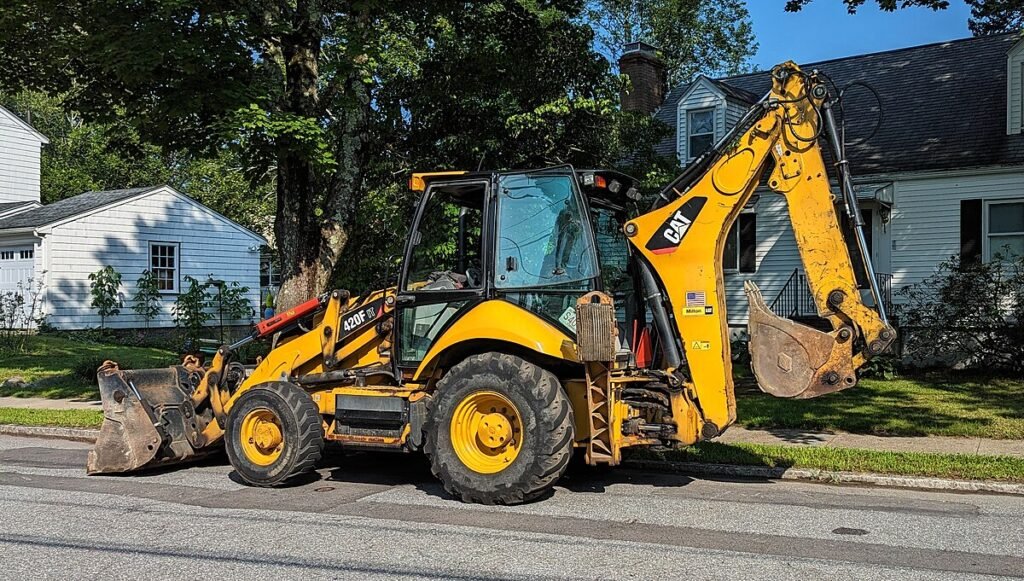
What are the Maintenance Costs for a Backhoe Compared to an Excavator?
Both backhoes vs excavators require regular maintenance to ensure optimal performance and longevity. This can include oil and filter changes, hydraulic system maintenance, track or tire replacements, and other routine checkups.
Backhoe Maintenance Costs
In comparison, backhoes are generally cheaper to maintain than excavators. Their simpler design, smaller engines, and less complex hydraulic systems make them less expensive to maintain. The more limited use of smaller backhoes by the owners we spoke with also means there are fewer systems that require maintenance, fewer components to wear out, and lower repair and parts replacement costs. This situation, of course, could be different if a backhoe is used hard throughout the year or the ground it’s running over is very challenging.
Excavator Maintenance Costs
Excavators will generally be more expensive to maintain because they are larger, more complex machines, with more expensive parts and repairs. They have bigger hydraulic systems, and the hydraulics are more complex, with more hoses, coolers, and other systems that can break, leak, or wear out. Compounding the problem, the parts for excavators are typically higher priced and require more specialized labor to service. And, of course, a well-used excavator doing the tough daily work of digging will require more regular maintenance than one that is just doing a few lightweight jobs.

Conclusion
Fuel efficiency can be a significant consideration when deciding between a backhoe vs excavator. If you are doing smaller projects where you need a machine that can both dig a trench and swing around and load a truck, a backhoe can be a very fuel-efficient tool. You could spend a full day with a backhoe and only expend a few gallons of diesel. But if you’ve got deep holes to dig, demolition jobs, and heavy excavation work, the excavator is still going to be the efficient choice, even if it does use more fuel overall.

